Rick Newcombe
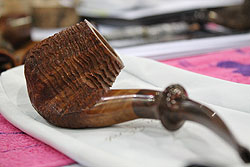 There are many great pipe shows in America these days — all put on by volunteers. As I am writing this in Los Angeles, my heart is in Columbus, Ohio. I wish so much I could be at the pipe show being sponsored by the North American Society of Pipe Collectors, which means it is being sponsored by a handful of enthusiastic pipe lovers who live in Columbus and are willing to work night and day to put on a great show.
There are many great pipe shows in America these days — all put on by volunteers. As I am writing this in Los Angeles, my heart is in Columbus, Ohio. I wish so much I could be at the pipe show being sponsored by the North American Society of Pipe Collectors, which means it is being sponsored by a handful of enthusiastic pipe lovers who live in Columbus and are willing to work night and day to put on a great show.
There is so much work involved in organizing and running a good pipe show, and the only reason anyone would put in all those hours for free is out of a labor of love.
Most pipe show organizers make personal financial guarantees to the hotel or venue that hosts the show. If the money is not raised, they would be out of pocket. Same for pipe clubs that sponsor shows. I know of several organizers who consistently fund excess expenses out of their own bank accounts, and I do not know of a single pipe show organizer who is getting rich off the proceeds.
So why do they do it? What is the main benefit of a pipe show?
I believe the answer is that, in this anti-smoking world, there is a yearning for social get-togethers among like-minded people. We pipe smokers are the few. In fact, we almost never smoke pipes with our friends during the course of a day. We typically smoke alone at night, and our pipe friendships are nurtured by phone and email, for the most part.
A pipe show is a time for us to see old friends and make new ones, all with a shared passion for our pipes. But it is important not to take these shows for granted. As a collector, I feel obligated to make contributions to the auctions at every show I attend. I always buy a table, even if I don’t have anything to sell — just to support the show.
The people whose primary goal in attending a pipe show is to sell things have a special obligation to help the shows. The good news is that many of them do. Three examples are Sykes Wilford, Aaron Sissom and Steve Monjure, who consistently support pipe shows by buying an extra table or two. Iwan Ries offers an endless supply of hot coffee at the Chicago show. There are many other examples of sellers who make contributions to the auctions aimed at raising funds to cover expenses at existing shows and to provide funds for future shows.
The cost of the tables may or may not cover all expenses, so having a fundraising auction has always been a good insurance plan for the shows. I am proud to donate some of my books, used pipes, pipe racks, whatever, as a way to help the shows, and I have many friends who do the same.
But there seems to be a trend among some pipe makers not to donate one of their pipes or tampers or anything to help the shows. They feel that by attending the show and buying a table they are doing enough.
I don’t think they are, and I hope they will reconsider their position.
Of course, some pipe makers consistently donate a pipe to help out, and they should be recognized and praised. I applaud those who do and want to persuade the ones who don’t to change their minds.
As pipe maker Brian McNulty of Anima Pipes says, “It’s just the right thing to do.” Yes, Brian is old-school in his thinking, and I find that very refreshing. It is not just about the money.
Remember, the primary purpose of a pipe show is for like-minded people, totally alienated from the world at large in respect to our hobby, to gather in one place and have fun. It is NOT to make money. If you make a little, fine, but that should not be your primary goal in attending a show. The outside world thinks we’re all a bunch of nuts because of our enthusiasm for pipes in the 21st century, which explains why it is so reassuring for hundreds of us to gather together for a couple of days.

I think a pipe maker should display his pipes on a table at the shows primarily to promote his work — advertising to promote the brand, if you will. If he makes some sales, great. If not, he can sell his pipes on his website or through a pipe distributor. With that mindset, pipe makers will be much more relaxed at the shows, not feeling the pressure to sell as many pipes as possible. Collectors will be more relaxed in studying a new pipe maker’s work, knowing that there is no pressure to buy on the spot.
With so many new pipe makers at every show — at times it seems like thousands — there is a feeling that some are in it only for the money. A good way to dispel that notion would be for them to donate pipes to demonstrate their commitment to the hobby and to promoting successful pipe shows.
If the thought is that your work is too valuable to be given away, I would remind you that Jess Chonowitsch, one of the greatest pipe makers in history, donated a pipe to the West Coast Pipe and Cigar Expo in 2000. So did Peter Stokkebye, whose Jorgen Larsen pipes still sell for many hundreds of dollars.
I vividly remember the banquet dinner at that show in Los Angeles being seated between Jess and Peter, and the latter, who had a wonderful sense of humor, was clowning around, telling Jess, “My pipes have never been outbid by any other pipe maker’s. We always raise the most money.” Jess chuckled and said, “Well let’s see how it goes.”
The Stokkebye pipe sold for an impressive $400 and the Chonowitsch for considerably more, $2,250. The organizer of that show, Robert Vance, told me that those two sales made the difference between the show breaking even and losing money.
I asked Jess why he donated a pipe, and he said, “To help the show, of course.”
Tonni Nielsen, Tom Eltang, Former, Rainer Barbi, Paolo Becker and many other great pipe makers have donated pipes as a way to help the organizers pay the bills that all pipe shows demand. Lars Ivarsson has donated handmade pipe tampers that raise a great deal of money for the shows. All these pipe makers have been around for years and years, and they understand that pipe shows have provided a tremendous boost to their worldwide sales for a variety of reasons.
In Europe, pipe shows are “sponsored” by a pipe store owner who then collects anywhere from 25 to 50 percent of the sales price from each pipe maker. It is something like a tax, and it helps the show organizer pay the bills.
But since in America we have no sponsors, only volunteers, and no one is taxed — it becomes a matter of generosity, good will and fairness.
Don’t forget, the organizers make it possible for the pipe makers, and pipe dealers, to sell their wares, and for us collectors to have all those super-fun weekends with our pipe-loving friends. We should all try to chip in to help the shows, but especially the people who go there for personal financial profit. They have a special obligation to pay back for some of the tremendous benefits the show organizers are providing them.
For many years I syndicated a column by the late motivational speaker, Zig Ziglar, and he had a famous saying about business that captures everything I have learned as a successful entrepreneur: “You can have everything you want in life as long as you will help enough other people get what they want.”
The show organizers help us get what we want, and we should give back by helping to make sure that their financial pressures are alleviated as much as possible. It is win-win if both sides contribute equally.
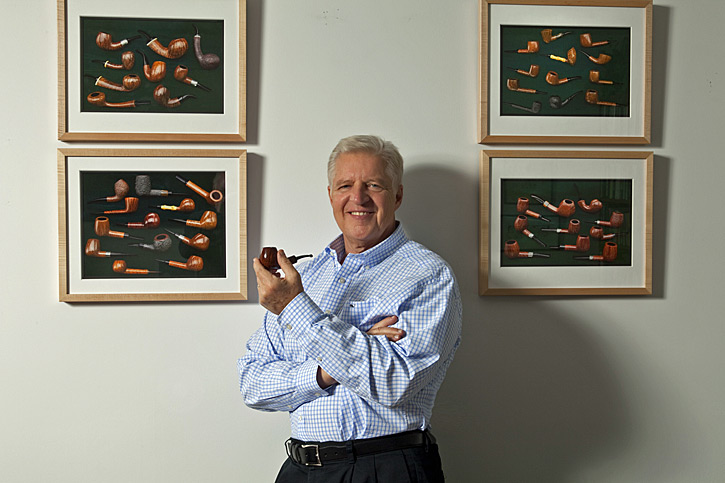
Rick Newcombe – Pipe Collector, Author of Several Pipe Books, Founder of Creators Syndicate
Still Searching for Pipe Dreams
In Search of Pipe Dreams





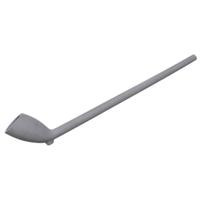





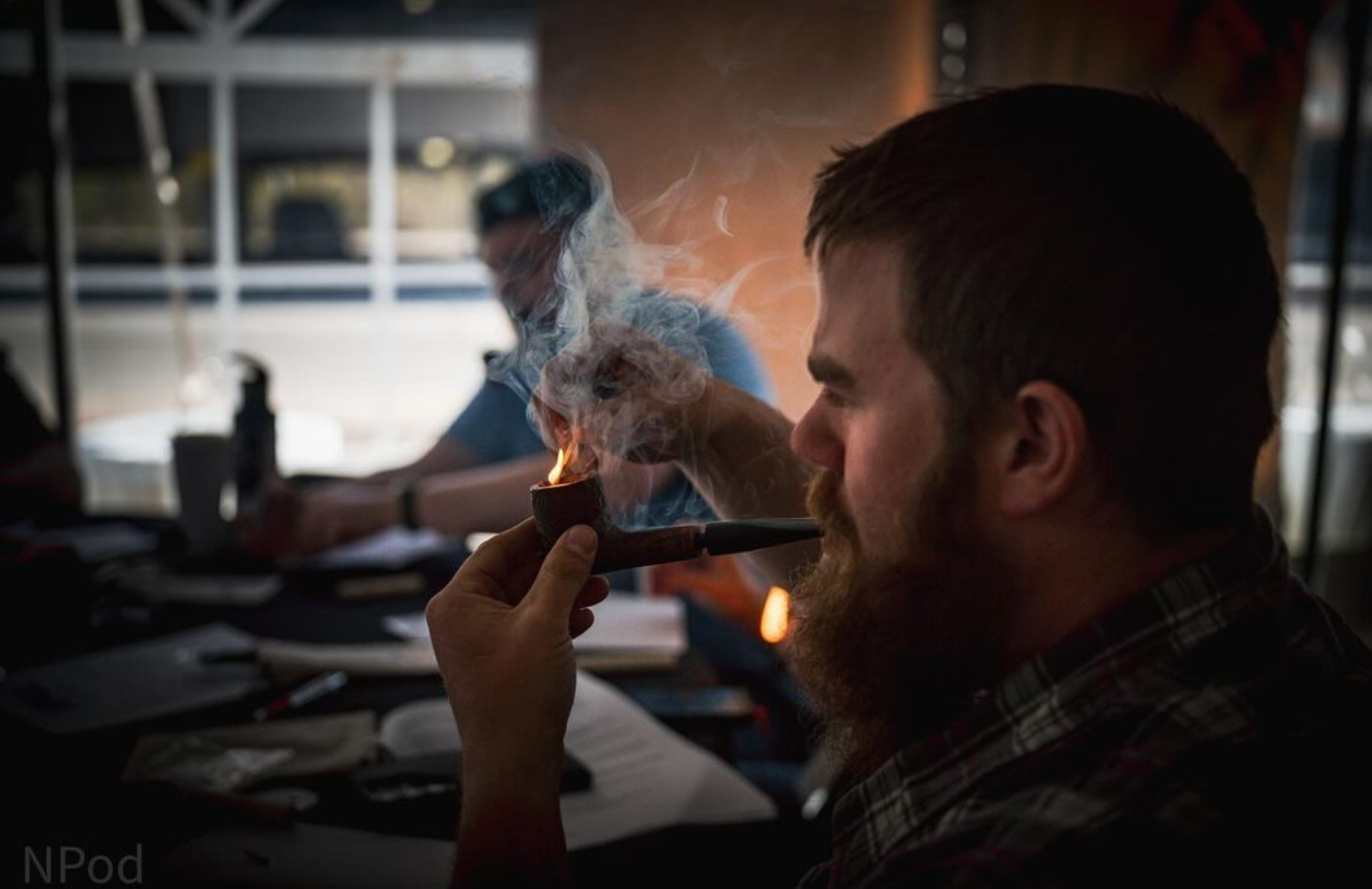
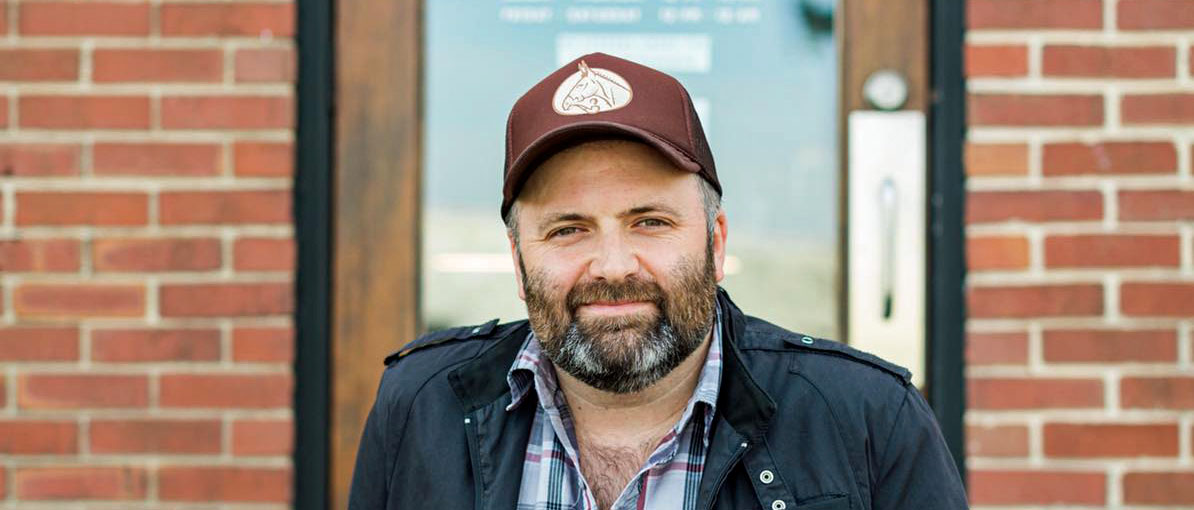
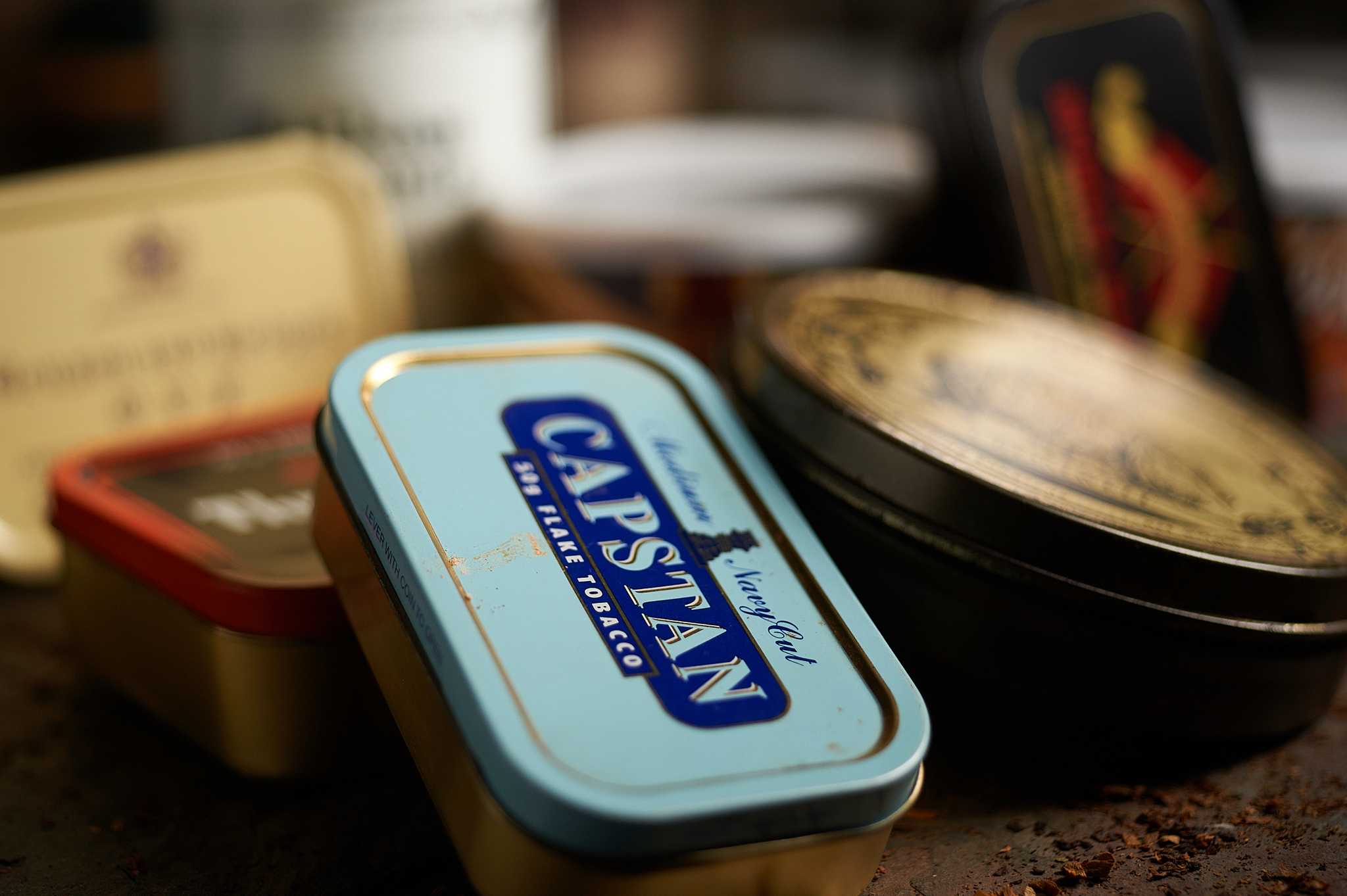
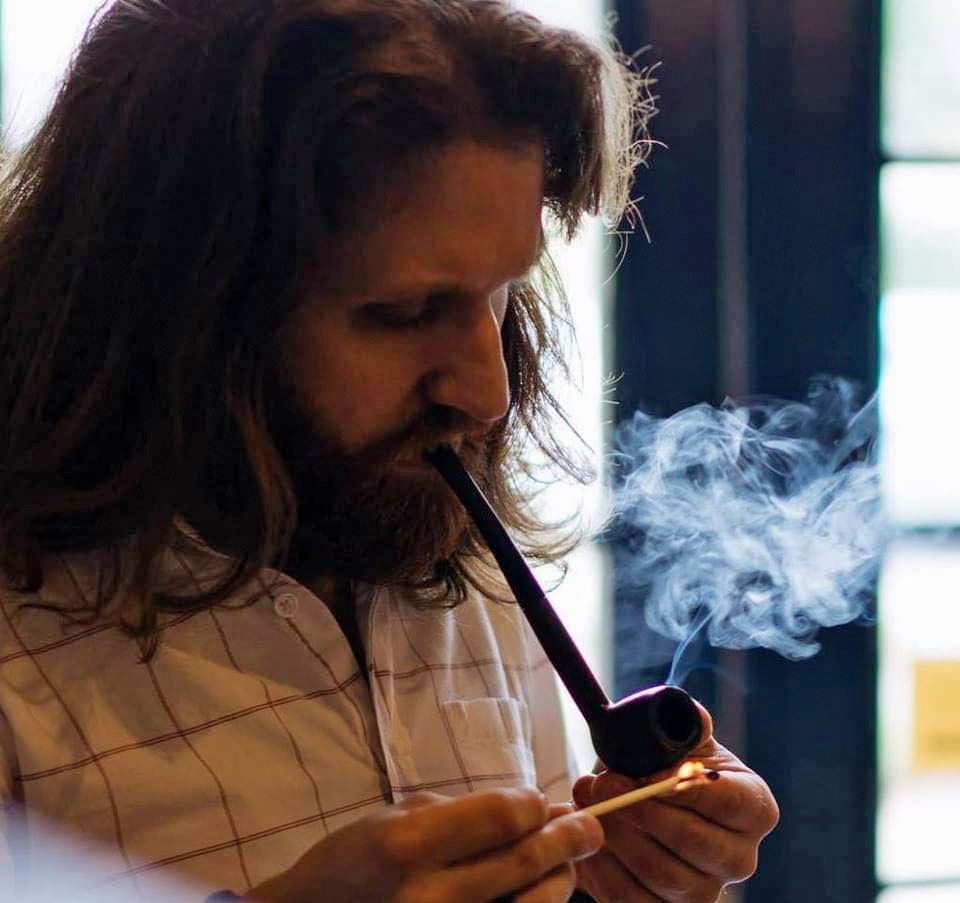

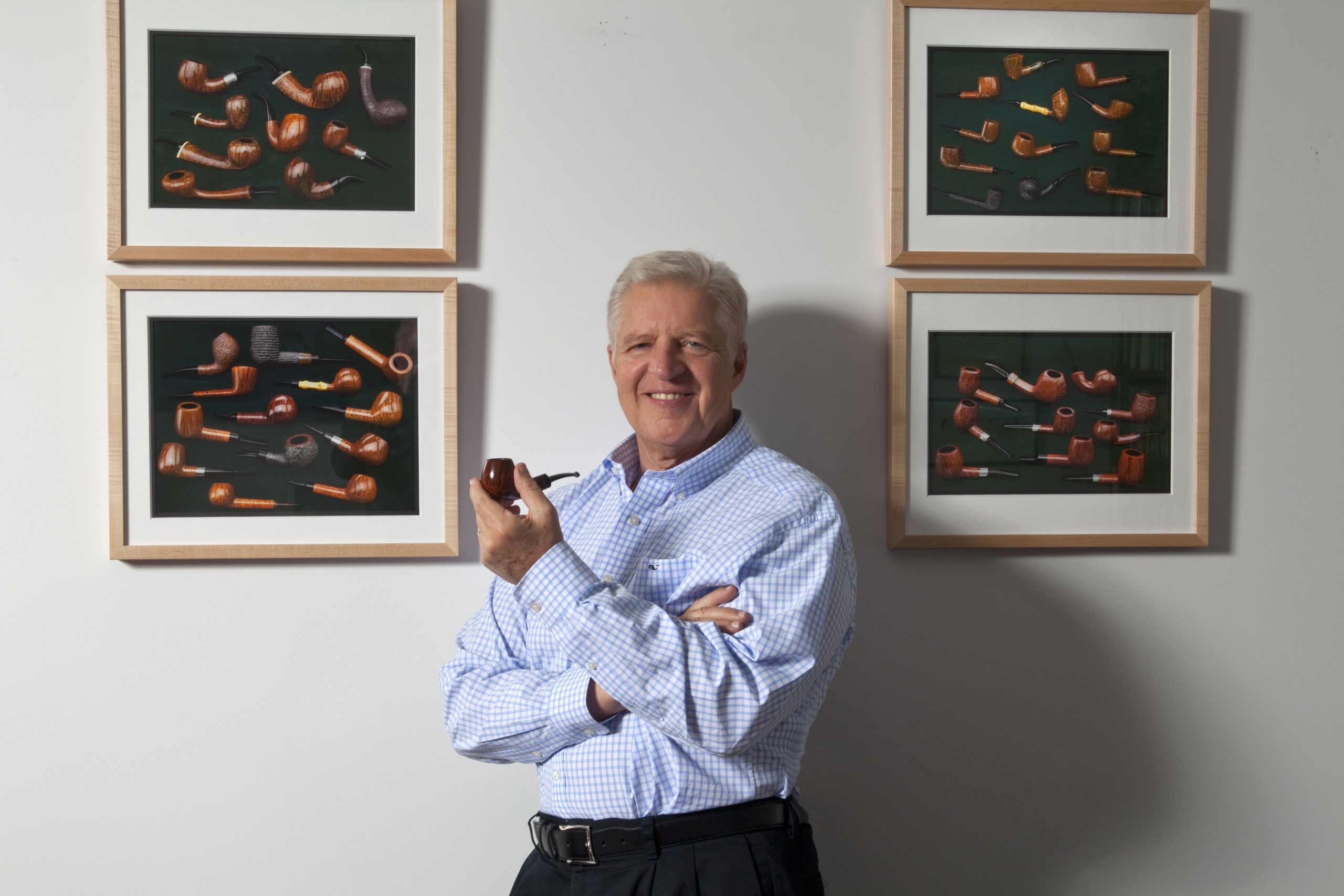




Nice essay. I really hope to make Chicago next year. I have a perpetual conflict with Columbus, which is even closer for me; otherwise I’d go there.
Great article and I enjoyed the read… But not all pipe shows in Europe are sponsored…. The four I know aren’t are Newark UK, Speyer (coming up), Budingen pipe and art, and the Lohmar show… The pipe makers that attend these all make a donation upon the shows conclusion, but they are nothing like what I’ve heard the US shows are like… I’ll find out in Las Vegas whe I attend and have a table for my first show there…. We’ve done a running pipe to help raise funds, etc … The tobacco show I presets at was the same… No fee, soooooooo
I guess I’m probably rambling when my point is only to say all shows aren’t sponsored… I guess I’ll have something to compare the German shows I’ve attended come November… Also, you point is mostly correct as I’d wager 80 percent are sponsored
James
Daaang Rick! Talk about a guilt trip! 😆
Seriously though, every vendor and maker’s situation is different. For some guys, it is very much a matter of finances. For others, maybe not so much.
I will speak for myself, personally, as I do not know other makers’ situations.
I have always tried to donate to pipe shows when I am able. Sometimes, I’m not able. Back in the day, when I was working a full time job outside of pipemaking, donating something to a pipe show was no big deal. Pipemaking was a fun little hobby, and sales were the icing on the cake. I’m sure there are many makers who are in that same position today.
But moving in to the realm of the full-time artisan pipemaker, it is not always possible to make those sacrifices, and these days I’m lucky to break even at a pipe show. Maybe I need to take more time away from my family to get more pipes made so I can donate something? Maybe I need to raise my prices and hope I still sell just as many pipes so I can donate something? These are difficult decisions to consider. It’s not as easy as “hey, I’ll donate a pipe”.
I always buy a table when I attend a pipe show, and admittedly, I felt pretty good about myself for doing so, until I found out today that some folks feel like it is not enough. Nobody should be looked down on for contributing what they can, no matter how small.
Personally, I feel like each breathing body in the building is an important part of a pipe show. If you’ve donated an item to the show, great! If you’ve bought a table, and are exhibiting something on it, great! Nothing kills the mood of a show like a row of empty tables. If you are an attendee, a consumer, walking the floor and buying pipes and tobacco, and tampers, and tobacciana, fantastic! In my opinion, these folks are the life blood of a pipe show, and [b]I challenge anyone reading this to become a pipe show consumer.[/b] If you are an attendee, but can’t afford to buy anything, you are important too! You contribute to the overall atmosphere of brotherhood that helps to attract those who will buy! And if you are a volunteer who helps to run the show, it should go without saying that you are where it all begins, you make the magic happen.
On a side note. Robert Vance is a great guy. I hear that he still has the gecko pipe that I carved for, and donated to the Old Pueblo Pipe Club show in Tucson those many years ago…
[img]http://www.jack-tompkins.com/Pipes/Shows/OPPC2001/Show%20Day23.jpg[/img
Well said, Rick.
There’s no contradiction here I believe, James – even though UK Newark show isn’t sponsored, the generosity from the Trade (and individuals) is immense and, without that, there’d be no show.
We contribute or lose.
Nicely summed up Rick. This is timely in light of news from the CORPS group that their show in October will be there last. We have a obligation to support these shows, help the organizers and spend some cash – or they will go away.
I enjoyed this article which I view as a call to arms for everyone in the hobby to support shows. I am not as convinced we need to put the entire onus on carvers. Most items in an auction environment rarely bring 50% of their sales value. If a carver donates a pipe he could sell for $500 he’s out $500 worth of income but the show hosts will probably only realize $250 on the auction. The carver would be better off selling the pipe for $500 and donating $250 to the hosts.
In KC we have received outstanding support from exhibitors, carvers, manufacturers and vendors who attend our show. I don’t know how much more we can expect of these people.
To me the real problem resides with Joe Pipesmoker. This guy represents probably 90% or more of the people who frequent a web site like this one. These people do absolutely nothing to support the hobby. They won’t go to a pipe show any further away than across the street, they make zero contribution to any show, they don’t subscribe to P&T magazine or the NASPC newsletter. I know not everyone can care but it seems we have the lowest percentage of carers of any hobby group.
What most shows need is greater attendance with a willingness of the attendees to make some cash contribution to the show. Buy raffle tickets, or merchandise, make serious bids in silent auctions, etc. Even a straight cash donation works. It does not need to be a large amount. And as your financial condition permits make purchases from the people selling pipes, tobacco, and goods.
And if you go to the show try to stay at the hotel the show recommends. Yes it might cost more but the hosts usually have to guaranteed a number of room nights or face a financial penalty.
I am amazed that more pipe clubs don’t organize safaris to the nearest pipe show. The number of people who live within four driving hours of a show is quite large. Leaders of these clubs who aren’t already promoting the idea of going to a show should be doing it. I don’t think it is unreasonable to ask people to attend their nearest show once every four or five years.
Please understand I am not saying everyone should attend every show. But at least put one on your schedule if you can afford it.
Our community needs pipe shows. They are, truly, the one and only place that supports the physical gathering of pipe folk in numbers large enough to generate engagement, enlistment and conversation. For our hobby, passion, raison d’etre to continue we need pipe shows to continue.
Hearing about the demise of the C.O.R.P.S. show was tough. It was alarming enough for Craig Cobine to light the pipe-signal and call for support/volunteers/participation in the organization and delivery of the Chicago Show.
Watching the birth of the Southern Fried club and show has been inspiring, and being on the ground with the birth of our own club in central Ontario has been grand too. Last year we had a smallish gathering of pipers for a burner and swap meet, this year we’re having a larger event partnering with a neighbour club. Events get momentum when they are successful, but they need new blood, new ideas, new skills and more energy to survive… the focus of all has to be on delivering a solid product for all participants (consumers, vendors, club and venue) and financial stability.
When I saw the posting on the CORPS event I immediately asked, what can I do to make sure this doesn’t happen to another show? My answer, first, was, “Go to another pipe show next year.” I think Walt’s right. For Pipe Shows to continue we have to be consumers of them. Further, if we have the time, energy, inspiration and skills to make them better, then volunteering to do so is a pretty good continuation.
$0.05 in the bucket.
— Pat
I wrote this essay BEFORE it was announced that the Richmond show will be discontinued after this year. As Jon Guss says, pipe shows are “fragile” because they depend primarily on a handful of people. The more the rest of us can contribute, the more likely it will be that they continue and thrive.
Frank Burla, founder of the Chicago show, asked me to post his comments:
Hi Rick,
Great article as always.
The below would be my response:
As the former Pipe Show Director and current consultant to the Chicago Pipe Show, I can totally understand Rick’s concerns.
From the onset of early pipe shows up to the present, be they The Indiana Briar Briars (Basil Sullivan), The Pipe Collector’s International (Bruce Spencer), The CORPS Show (Linwood Hines), The West Coast Show (Marty Pulvers), The New York Show (Rich Esserman), The Chicago Pipe Show (Craig Cobine), etc., there will always be a concern about costs.
The early Show Officers wanted to find a suitable “LOCATION”, followed by doing something special, as a thank you, for the exhibitors and walk-ins. The initial thought was to give free coffee and lots of it.
Most of the first shows were what we called collector trade shows; the exhibitors would buy, sell and trade used pipes with each other. Occasionally there was a new pipe or rare tobacco that all wanted to have.
Walk-ins were a thing of the future during the early days. The show was basically for those who came and exhibited. They were able to visit for lengthy times with their friends from all over a several state area and still trade, buy and sell.
As shows developed, the exhibitors and the few walk-ins who started to attend wanted changes. They wanted more exhibitors and a larger selection of items to choose from. This would necessitate changes in the base show that would start becoming more costly.
No more just coffee, but other things to bring the people in and make them stay overnight or longer. You decide to do something that other shows did not do to get the bigger crowd from a longer distance. You made the show longer than one day or afternoon, for you arranged activities to give the visitors something to do at night, arranged a simple buffet or dinner and gave your visitors a nicer hotel or resort to make them comfortable.
The above changes started to raise the cost of a simple pipe show. Ways had to be developed to pay for the larger ballroom, the food, the activities, advertisement, etc. Higher prices were paid for exhibitor tables, the walk-ins now paid to visit the show and you were always looking for someone to donate $20.00 to help pay the bills.
Everybody enjoyed the developing show but few realized the new developing costs. Keep in mind that the Show Directors and their staff rarely made a profit on a show. If you were lucky to break ever or make a few dollars, the odds were you forgot to pay a bill.
The Show Directors, their staff, the club members (if a club was involved) made nothing for their many hours of work and were satisfied with the pride they felt by having a good show.
As the shows became much bigger, in later years, with the inclusion of pipe makers, distributors, retail stores, tobacco blenders, more walk-ins, etc., the costs continued to raise, because of sheer numbers. The cost of tables, the admission fees and sponsors donations rarely cover the show’s costs today. Show staff and friends were looking for donations of cash or something else to help.
Thank you to sponsors who have helped the pipe shows grow; for they are always there to help. A new idea developed to try and get more funds to help pay for the “freebies” at the Show. It was called the Auction or some other type of name. With this auction, a show representative would ask exhibitors, walk-ins, the tobacco trade exhibiting, etc. to donate something special for someone else to buy (at less than it cost you to make or to buy) to help pay for the show. This is the same show that you are already spending money for transportation, lodging, food, maybe a little drink, in hopes to sell and make a profit, so you can pay for your expenses and hopefully for your work effort and go home with more than you came with.
Yet you know that when you arrive, you will be asked, some say pressured, to donate something to help the show break even or maybe make a few dollars. This donation usually comes before you even unpack your wares.
You look at your friends making donations for the show and hope that you can donate something but you can’t. You believe that these friends of yours are more successful than you and can afford to donate.
So you decide not to donate and feel really guilty about not having something with your name on the auction table for all to see.
Maybe you are starting to feel guilty and will donate something next year. Maybe you say, I did not donate last year and why should I donate this year, even though I made money at the shows I attended in the past. Let someone else give a donation, for I am doing well. They are foolish!
OH WAIT!
What did I just hear, what was said? The show is closing down for a lack of funds to continue it. Oh no, it can’t for it was a great show for me. Maybe I should have done more or at least tried.
Always remember, we can all do something, for every little bit helps when added with all of those other little donations.
Thank you for listening
Frank P. Burla
I accept Rick’s reminder that carvers bear a special responsibility due to the centrality of their role in the pipe community; and of course that’s equally true for tobacco blenders too. But beyond that point I wholeheartedly endorse the idea that it’s really the obligation of everyone who enjoys a show to help keep it going.
I’ve been lucky enough to participate in a few of the side-events in Chicago over the years, and can tell you the amount of work involved is just hard to believe. And what I did was a tiny fraction of the effort put in year in and year out by Craig Cobine and his team. Chicago is an enormous undertaking, and the same thing is true for every show and major club event across the country.
In each case, the men and women who do the work have other demands on their time; like us, these are people with competing obligations of work and family. The line of these men and women is also pretty damn thin. It doesn’t take many dropping out, sometimes as few as one or two, for an event to fall apart.
As a guy who’s been involved in turnarounds for the last few decades, I can tell you it’s a lot easier to keep a business going than it is to create one from scratch. Each show that shutters is an irreparable loss, and the likelihood that something new will successfully take its place is small.
I recognize the reality that we can’t all contribute our time. Shows are local, and the hardest work is inevitably done by the people on the spot. But we can all offer our support in other ways. As Rick mentioned, auctions are often vital to the financial success and well-being of a show. I always try to contribute something to sell, and always look for things to buy. I doubt if there’s a person reading this that doesn’t have pipes they never smoke, for example, or tobaccos they’ll never get around to opening.
I also suspect that in many cases there’s room for modest price increases on admission and tables. An extra ten bucks is unlikely to deter someone who’s already decided to come to a show, but multiplied by the number of attendees or vendors may make the difference between surplus and deficit.
Great article, as usual, Rick! And it’s got me thinking…
The shows are a very important part, if not an essential part of the pipe World. And beyond that, they are a great deal of fun, and the best way to get to visit with pipe friends face to face, and pipe to pipe. I’m more than happy to support the pipe shows beyond the cost of a table. I can’t stand the thought of them going away for lack of support… Getting the news about Richmond was heart breaking!
I have donated pipes to shows, but, as Walt pointed out, it is really tough to do with handmade pipes. I make somewhere around 50 pipes a year. My pipes sell for between $385 and $685. I still have a day job, otherwise, these numbers would be really tough to live on, especially after materials, supplies, and overhead is figured in, not to mention paying all one’s own benefits, such as health insurance, retirement, taxes, etc…
So, what to donate?
When I have enough pipes ahead at showtime to display and still donate one to the club, I’m happy to donate a pipe, and consider it a very good investment. In 2011 and 2012 I donated pipes to the Chicago show. Even though those both went really cheap (about 1/3 of my retail price would have been), one of them ended up being a great pipe for the recipient, and the next year he bought one of the more expensive pipes off my table, and he bought a third pipe off my website later that year. That was good for the show, good for the collector, and wonderful for me!
But, when I barley have enough pipes to put on my table to offer directly to my customers, which is most often the case, I’ve got to come up with something else to donate. The last two years I’ve donated tobacco and estate pipes. These were worthwhile donations, and did not destroy my finances, but I really like the idea of donating something I’ve made. Perhaps in the future it will be pens out of briar and ebonite, like I make as gifts for non-smoking family members, or maybe some nice handmade tampers. These would be a good way to donate something personal without taking quite as big a hit as I do when donating a handmade pipe…
One thing I’ve learned, you really never know how ones contributions to worthwhile causes like pipe shows will work out, but as long as I can afford to do it, I’ll certainly be trying to do something to help further the cause….
The carvers should do what they can, with no malice towards those that can’t do more than attend. The Spirit of the show is very important and no one should ever forget Ricks’ words. Soon, WE all could be hiding out just to share a pipe. Lets not cut our own throats with bickering.
Another fine missive that certainly provides food for thought – something Rick has always been exceptional at accomplishing. Pipe shows are VERY IMPORTANT to the hobby. I can’t count the times over the years that I’ve met someone attending their first show. Invariably, their enthusiasm for the hobby increases dramatically after discovering new friends with the same passion they have. Those people then bring in new people and our hobby expands further – something very much needed and accomplished by pipe shows.
When I attend a show, I always get a table and donate something (whether it be money or a raffle item, etc), because that’s just my way of giving back to the hobby and showing appreciation and support for the tireless efforts of the show organizers. These shows, unfortunately, can’t be run on an empty tank.
I’ve personally won three auction pipes over the years and tend to support further those who have donated. It’s a marketing expense in my book – a tax write off. I would like to see more pipe makers get involved. If a carver donates a $500 pipe to a show’s raffle or auction, then he/she can write it off.
I also support those carvers who are not able to afford the time or expense to donate a pipe and I think Rick would totally agree.
Again, another great article written by one of our hobby’s true champions!
Steve Fallon – Pipestud
Rick: Thank you for a great article and your support of pipe shows everywhere. Shows are essential to the pipe smoking community so that we don’t become hermits smoking alone on our porches and basements; communicating only through the internet. The Chicago Show depends on its silent auction to continue. Thank you to all who donate, and to all who bid. And,thank you Rick for bringing this to everyone’s attention, and thank you Kevin for posting this on PipesMagazine.com.
Craig
Just to give you an idea of how serious the problem is you will note in the Forums section a thread titled “Your Favorite Baccy Label” was created about the time this article was released already has 37 replies. For this seminal article we are just past a dozen.
Gentleman, the rank and file pipe community simply doesn’t care enough to even give a damn.
Just a thought…
Maybe there are folks who can’t afford to attend a pipe show, but would still like to support the show somehow. Maybe some folks in the pipe community would want to donate five or ten bucks through a gofundme or indiegogo campaign to help a pipe club ease the financial burden of putting on a show. Maybe they’d donate even more if there were some rewards involved, (club pins, patches, buttons, stickers, t-shirts, etc…)
Couldn’t hurt, right?
I have been the last four Chicago Pipe Shows. Vacation already approved for 2015 show. I sold tampers at the last three shows and have donated to the silent auction each time. I agree with others that the prices at the auction are considerably less than at the tables. I intend to continue my practice, but also intend to bid more aggressively next year.
I would love to one day attend a pipe show but they are too far distant from where I live and my wife would need to find something to do such as somewhere to shop. She doesn’t like smoke so I would have difficulty having her attend with me.
We have one coming up in nearby Nashville but we’ll be leaving on vacation that same day so it’s out for my attending.
Maybe next time.
Rick. Thank you for your remarks here, especially the one about your heart being with us here in Columbus 2 weeks ago. The NASPC Swap/Sell Show has been in continuous operation for over 20 years now, and we have had tremendous support from not only our exhibitors, but also our attendees. The costs of putting on a show like ours are tremendous, and we always walk a fine line between breaking even and losing money.As many people know, we also publish a well received bi-monthly newsletter, that also walks that fine line. The raffle we run at our show with donations from many people and companies is what keeps us from being in the red at the end of the year. I understand what the small carvers like Scott and Walt are saying, and I want to put forth another viewpoint. Consider the advertising value of your donation. I work very hard through the day of our show to remember our raffle donors and mention their names. Especially when they are a big ticket item like a pipe. At our show this year, we had one carver in particular, whose donation was won by a gentleman who has a large online following. You can be sure that he will be spreading the word when he smokes and likes the pipe he won. Also, as has been pointed out, it doesn’t necessarily have to be a pipe. We appreciate all the people who donate to our raffles as much as we appreciate our exhibitors and our attendees and try to be sure that they get proper credit for what they have done. If you’re not a member of NASPC, or have never attended one of our shows, give us a try sometime.
Very thought provoking topic, article and comments. Pipe shows can be far more than just having fun.
hp
les
Thank you Rick, and those who have responded to this excellent article. It seems all who have commented, pipe carvers, show organizers and volunteers, collectors and just plain folk, understand the vital importance of the “Show” to our hobby. Minority groups, and we pipers are most certainly that, must work together to sustain the viability of the group. One cannot overestimate the significance of these gatherings. As others have stated, those who attend pipe shows and pipe clubs, who subscribe to pipe magazines, contribute to internet sites that are dedicated to the hobby, and shop at the dwindling number of Brick and Mortar shops, are the minority of the minority. The loss or weakness of each of these “support groups” threatens the entire community of pipe smokers.
To paraphrase a famous speaker, let the word go forth, from this time and place, to all our friends and fellow pipers, that it is up to all of us to support our shows, not only by attending, or getting a table to sell or advertise our stuff, but by volunteering to help, physically and with donations to auctions and to help defray the shows’ costs. And, further, to become active in a local club, urge fellow pipers to subscribe to pipe related publications, and in this age of internet stores, don’t forget to support your local Brick and Mortar shop.
Dino from Chicago
I read through Rick’s essay and the comments a couple of times. The essay is excellent and so are many of the comments. The precariousness of financing for pipe shows is troubling. Although I am new to the show circuit (my first was St. Louis in 2013), pipe shows have become high points in my retirement. Thanks to Rick for calling attention to the issue.
The several incremental solutions recommended in essay and the comments certainly will help to keep the shows financially sound enough to survive, but I wish that we could find a single, sweeping solution. Maybe someone should start a Foundation for the Perpetuation of Pipe Shows and get people like the Koch brothers or Bill Gates to divvy up a big bundles. In the meantime, I intend to keep attending shows and doing what I can to help.
Brian Levine talked about this article and the comments on his Radio Show No. 104 (a great show, as always), and he agreed with the need to support pipe shows but said this should come mainly from distributors, manufacturers and retail store owners — not pipe makers. I understand his point and don’t totally disagree, though I think occasionally all pipe makers should donate a pipe.
When I wrote this essay, I did not have in mind guys like Scott Thile, Walt Cannoy or Jim Cooke, because over the years they have made contributions to help shows, not always giving away a pipe but maybe something else. I also agree with kcghost’s suggestion that a pipe maker sell a pipe on his site and donate a portion of the proceeds. What I really had in mind, however, is the person who just started making pipes — maybe in the last year or two — who is showing up at shows asking $800 for a pipe. I have seen a whole bunch of pipe makers who fit that category. That said, we all need to do what we can to support as many pipe shows as possible.